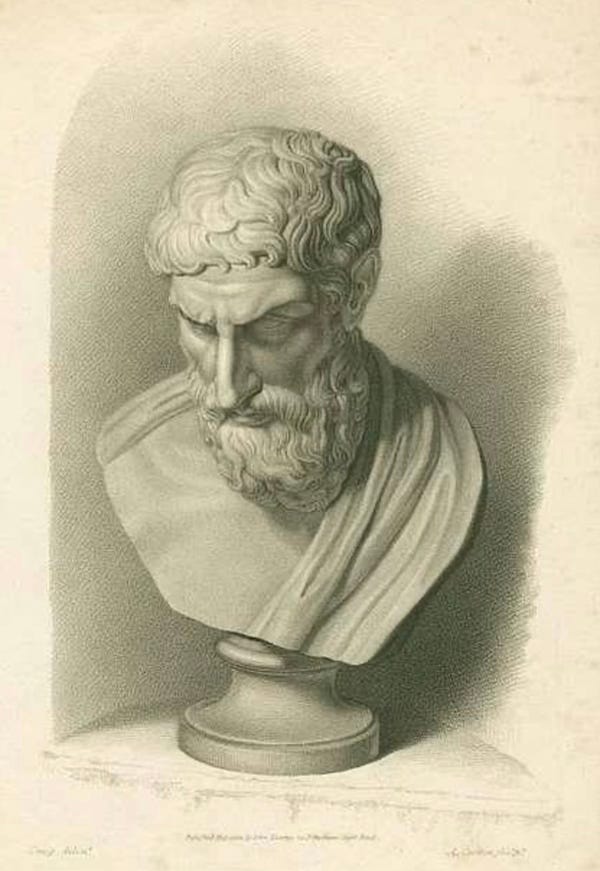Epicurus's Letter to Menoeceus
Manage episode 440903382 series 3588922
The Practical Wisdom podcast I produce is not for the faint of heart. Each series of episodes presents a deep dive into a single text from the Greco-Roman wisdom tradition. From time to time, as in the case of this post, it may helpful to pause and collect together all the entries referring to the same piece of classical writing, so that listeners can go back to them at their leisure, listen to them in sequence, and gain a broader appreciation of what they are about.
Today I submit to you a collection of links to my commentary of Epicurus’s famous letter to Menoeceus, in which the founder of the most famous hedonist school of philosophy explains the basics of his doctrines.
Epicurus touches on a wide variety of subjects, including why we should study philosophy, the nature of death and of the gods, the distinctions among different kinds of pleasure, the relationship between pleasure and pain, misconceptions about Epicureanism, determinism, and the notion of free will.
The translation I used is the one by George K. Strodach, published in Being Happy, Penguin, 2020. Here are the links to the pertinent episodes:
Why Epicureanism is not the philosophy of sex, drugs, and rock ’n’ roll
The Philosophy Garden is a reader-supported publication. To receive new posts and support my work, consider becoming a free or paid subscriber.
11 episódios





